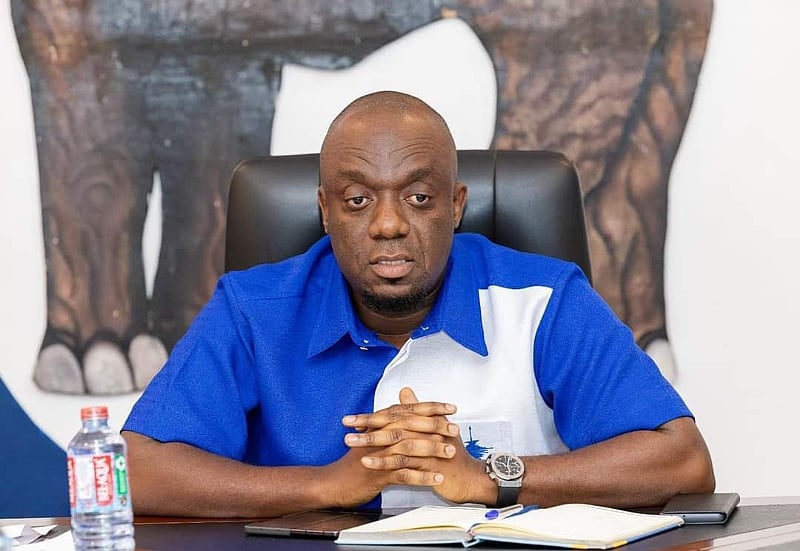The New Patriotic Party (NPP), Ghana’s primary opposition party, has vehemently denounced a series of actions by the ruling National Democratic Congress (NDC) government, characterizing them as politically motivated intimidation tactics aimed at suppressing dissent and undermining democratic principles. The NPP’s condemnation stems from two specific incidents: the arrest of one of its members, Alfred Ababio Kumi, and the alleged invasion of the home of its Ashanti Regional Chairman, Bernard Antwi Boasiako. The party argues that these actions constitute a direct assault on Ghana’s democratic foundations and represent a dangerous precedent for the future of the nation’s political landscape.
The arrest of Alfred Ababio Kumi, known as Adenta Kumi, has been particularly highlighted by the NPP. Kumi was apprehended in what the NPP describes as a “Rambo-style” operation conducted by officials from the National Intelligence Bureau (NIB). The arrest followed Kumi’s petition to President John Dramani Mahama, requesting the dissolution of a five-member committee tasked with investigating petitions seeking the removal of Chief Justice Gertrude Torkonoo. Kumi’s petition alleged an informal meeting involving three committee members and a lawyer connected to the case, raising concerns about potential bias and impropriety. The NPP contends that Kumi’s arrest is a direct consequence of his petition and constitutes an attempt to silence critical voices and suppress legitimate concerns about due process.
Furthermore, the NPP has condemned the alleged invasion of the home of its Ashanti Regional Chairman, Bernard Antwi Boasiako, popularly known as Chairman Wontumi. The party claims that police officers and National Security operatives were involved in this operation, further escalating concerns about the government’s use of state power to target political opponents. The NPP views this incident as another example of the NDC’s escalating campaign of intimidation and harassment, designed to stifle opposition and create an atmosphere of fear and uncertainty. The combination of these two incidents – Kumi’s arrest and the alleged intrusion into Chairman Wontumi’s home – has significantly heightened tensions between the two political parties.
The NPP, through its General Secretary, Justin Kodua Frimpong, has issued a strong statement condemning these actions. Frimpong argues that these incidents represent a clear violation of fundamental human rights and jeopardize the principles of transparency, justice, and equal protection under the law. He emphasizes that such actions not only endanger individual liberties but also undermine the integrity of Ghana’s democratic institutions. The NPP’s concern is that if these actions go unchecked, they could set a dangerous precedent, emboldening the government to further suppress dissent and erode the rule of law.
The NPP’s call for broader condemnation extends beyond its own party lines. The party urges all Ghanaians, as well as international observers and defenders of democracy, to speak out against what they perceive as politically motivated persecution by the NDC government. The NPP stresses the importance of upholding democratic values and safeguarding the rights of all citizens, regardless of their political affiliations. The party frames these incidents not simply as attacks on its members but as attacks on the very fabric of Ghanaian democracy, emphasizing the need for collective action to protect the country’s hard-won democratic gains.
In conclusion, the NPP’s accusations against the NDC represent a significant escalation in the political tensions within Ghana. The party’s strong condemnation of the arrest of Alfred Ababio Kumi and the alleged intrusion into Chairman Wontumi’s home underscores its deep concerns about the government’s actions and their potential implications for the future of democracy in the country. The NPP’s call for a broader condemnation and its appeal to international observers highlight the gravity of the situation and the party’s belief that these incidents represent a fundamental challenge to the principles of democratic governance in Ghana. The ongoing developments and the responses from both the government and civil society will be crucial in determining the trajectory of this unfolding political drama and its impact on Ghana’s democratic future.














